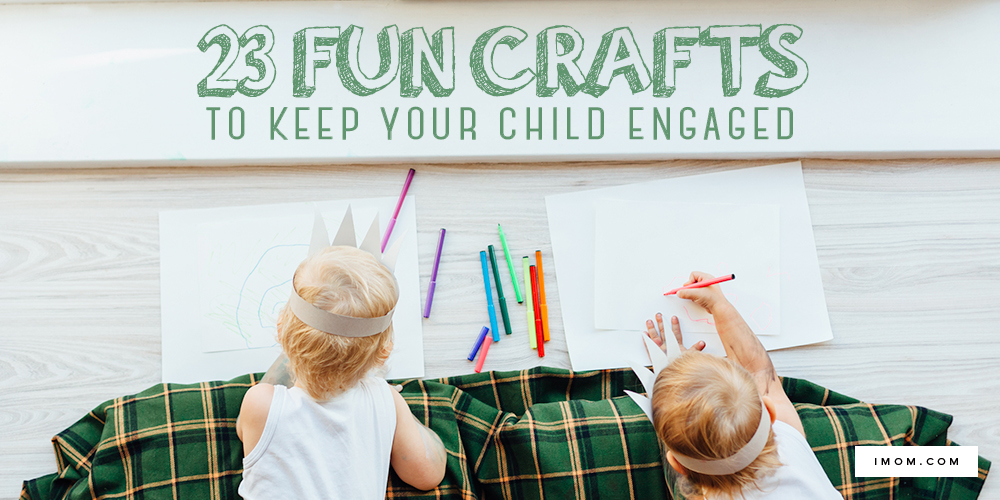One year I took a group of middle schoolers to camp. At the end of every day, we would all sit on the floor and process the day. As we were in the middle of a serious discussion a little girl in the corner said, “I have a question! Do you think that smoke detectors look like alien spaceships?” Most people in the cabin laughed, including myself, but others reprimanded the poor girl because her question disrupted a serious discussion. That’s when she said, “Oh, sorry. I have attention deficit disorder. Seriously, I take medication for it.”
She was sweet and I certainly wasn’t bothered by the distraction, but I started to think about what life must be like for her. Did this happen to her often? Would she get routinely reprimanded by her peers, teachers, and parents? Being hyperactive or having ADD or ADHD is difficult on a child and their families. If you have a child challenged in this way, you know. Here are 18 ways to help and love your child with ADD, ADHD, or who is hyperactive.
1. Be consistent in rules and discipline.
2. Keep your own voice quiet and slow. Anger is normal. Anger can be controlled. Anger does not mean you do not love your child.
3. Try to keep your emotions cool by bracing for expected turmoil. Recognize and respond to any positive behavior, however small. If you search for good things, you will find them.
4. Avoid a ceaselessly negative approach: “Stop.” “Don’t.” “No.”
5. Separate behavior, which you may not like, from the child’s person (e.g., “I like you. I don’t like your tracking mud through the house.”).
6. Establish a clear routine. Construct a timetable for waking, eating, play, television, study, chores, and bedtime. Follow it flexibly when he disrupts it. Slowly your structure will reassure him until he develops his own.
7. Demonstrate new or difficult tasks, using action accompanied by short, clear, quiet explanations. Repeat the demonstration until learned, using audiovisual-sensory perceptions to reinforce the learning. The memory traces of a hyperactive child take longer to form. Be patient and repeat.
8. Designate a separate room or a part of a room that is his special area. Avoid brilliant colors or complex patterns in decor. Simplicity, solid colors, minimal clutter, and a worktable facing a blank wall away from distractions help concentration. A hyperactive child cannot filter overstimulation.
9. Do one thing at a time: Give him one toy from a closed box; clear the table of everything else when coloring; turn off the radio/television when he is doing homework. Multiple stimuli prevent his concentration from focusing on his primary task.
10. Give him responsibility which is essential for growth. The task should be within his capacity, although the assignment may need much supervision. Acceptance and recognition of his efforts (even when imperfect) should not be forgotten.
11. Read his pre-explosive warning signals. Quietly intervene to avoid explosions by distracting him or discussing the conflict calmly. Removal from the battle zone to the sanctuary of his room for a few minutes can help.
12. Restrict playmates to one or two at a time because he is so excitable. Your home is more suitable so you can provide structure and supervision. Explain your rules to the playmate and briefly tell the other parent your reasons.
13. Do not pity, tease, be frightened by or overindulge your child. He has a special condition of the nervous system that is manageable.
14. Know the name and dose of his medication. Give it regularly. Watch and remember the effects to report back to your physician.
15. Openly discuss with your physician any fears you have about the use of medications.
16. Lock up all medications to avoid accidental misuse.
17. Always supervise the taking of medication, even if it is routine over a long period of years. Responsibility remains with the parents! One day’s supply at a time can be put in a regular place and checked routinely as he becomes older and more self-reliant.
18. Share your successful tips with his teacher. The outlined ways to help your hyperactive child are as important to him as diet and insulin are to a diabetic child.
Tell us! Do you have any tips to add?
(Used with permission and adapted from Why ADHD Doesn’t Mean Disaster by Dennis Swanberg, Diane Passno and Walter L. Larimore, M.D.)
Medical information within this site is not intended for use in the diagnosis or treatment of any health condition. Please consult a licensed health care professional for the treatment or diagnosis of any medical condition.










